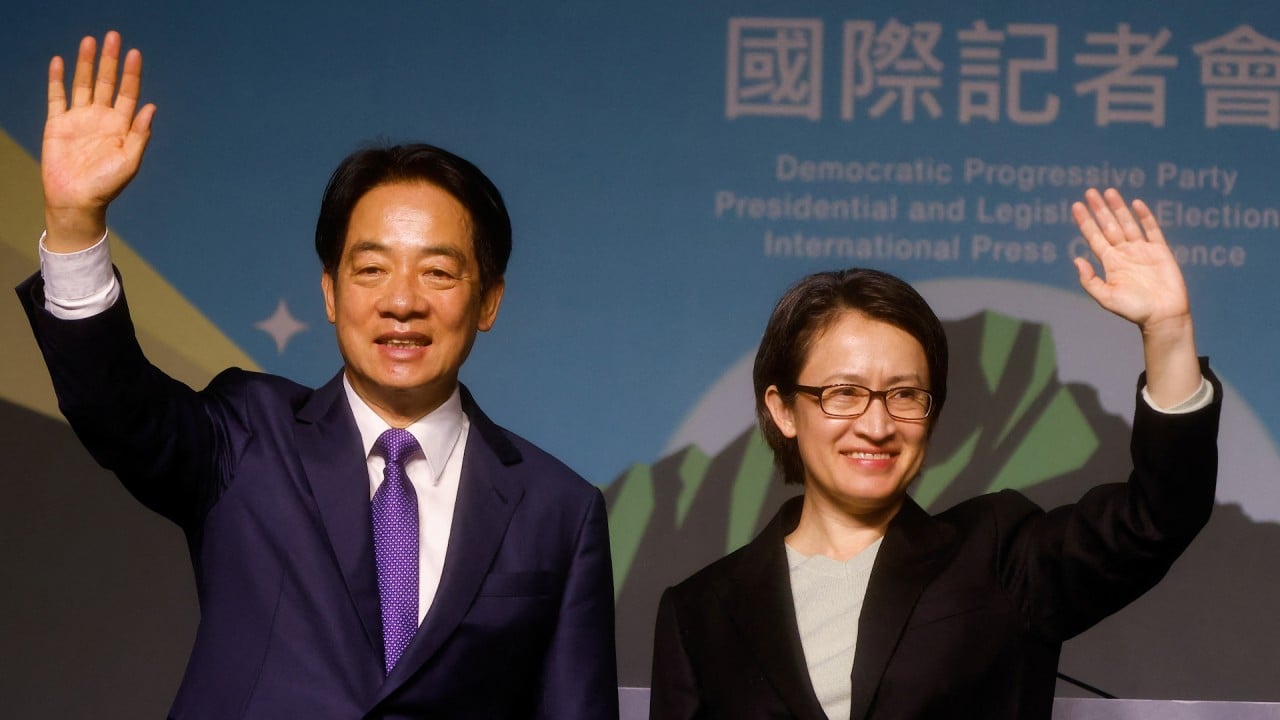
US fund for countries facing Beijing ‘coercion’ on Taiwan proposed in Congress
- ‘Taiwan Allies Fund’ would encourage nations that ‘lack the economic or political capability to effectively respond’ to retaliation from China
- Only 12 countries maintain official diplomatic ties to Taipei, with the Pacific island state of Nauru the latest to switch recognition to Beijing
A bipartisan bill introduced in the US Congress on Friday would direct US assistance to countries that face “coercion or pressure” from China for trying to deepen ties with Taiwan.
The legislation, sponsored by Representative Raja Krishnamoorthi, Democrat of Illinois and ranking member of the House select committee on China, would authorise US$120 million over three years for a “Taiwan Allies Fund”.
“The [Chinese Communist Party] has engaged in a years-long campaign to diplomatically isolate Taiwan, one of our closest friends in the world,” Krishnamoorthi said on Friday.
“It is time for the United States to stand with Taiwan in the face of diplomatic pressure from Beijing that seeks to undermine Taiwan’s rightful participation on the international stage,” he added.

The new fund would form part of a broader “Countering PRC Influence Fund”, and qualifying countries would be eligible to receive up to US$5 million a year.
Funds can be used to support alternative health initiatives to China’s Health Silk Road; strengthen civil society and media in countering Beijing’s messaging; diversify supply chains away from China; and advance Taiwan’s participation in international organisations.
They can also be used to develop alternatives to Beijing’s development assistance and its information and communications technology infrastructure.
The bill cites countries that have sought to expand unofficial ties with Taiwan like Lithuania, which saw its exporters heavily restricted from the Chinese market after the island set up a representative’s office in Vilnius using the name “Taiwan” instead of “Taipei” in 2021.
Most countries, including the US, do not recognise Taiwan as an independent state, but Washington is opposed to any attempt to take the island by force and is committed to supplying it with weapons.
To become law, Krishnamoorthi’s bill must pass the House and Senate before reaching Biden’s desk. It has the support of Representative Gregory Meeks of New York, the top Democrat on the House Foreign Affairs Committee.
Representative John Moolenaar, the Michigan Republican who chairs the House select committee on China, and other members of the House foreign affairs and select China committees – Representative Andy Barr, Republican of Kentucky; and Democratic Representatives Ami Bera of California and Gerry Connolly of Virginia – are also cosponsors.
In recent years, Washington has increasingly tried to support Taiwan’s presence in international institutions, drawing Beijing’s opposition.


